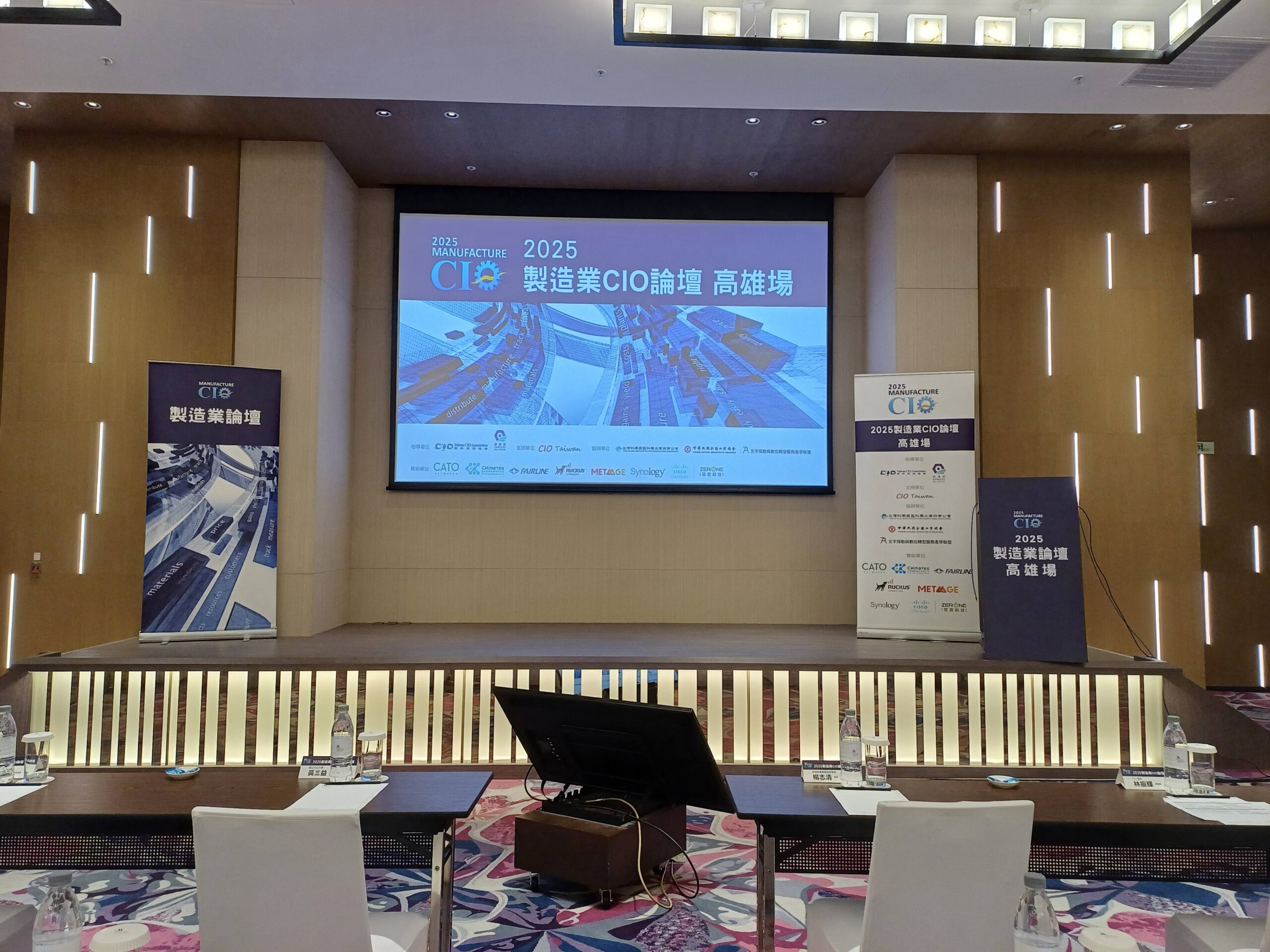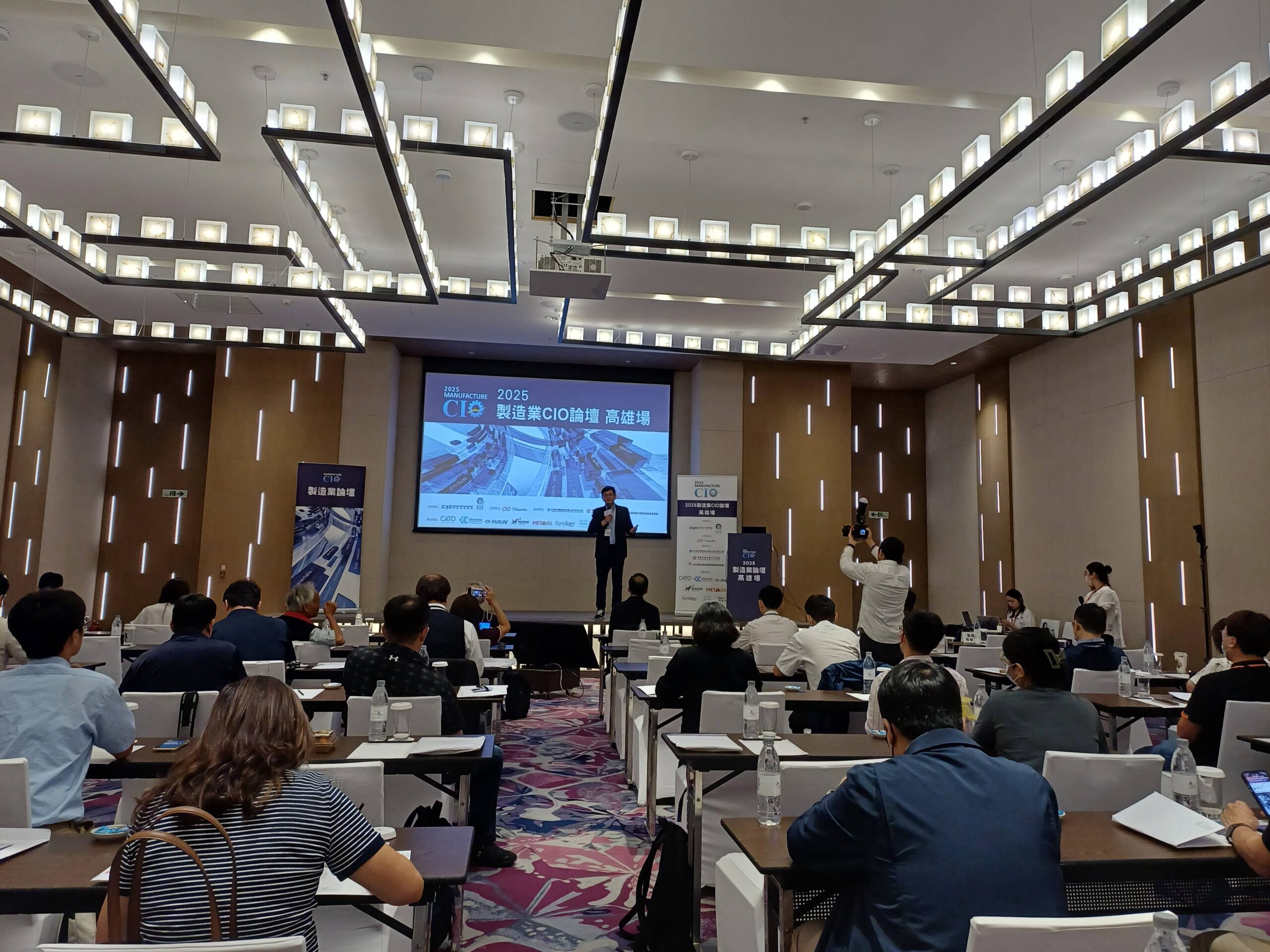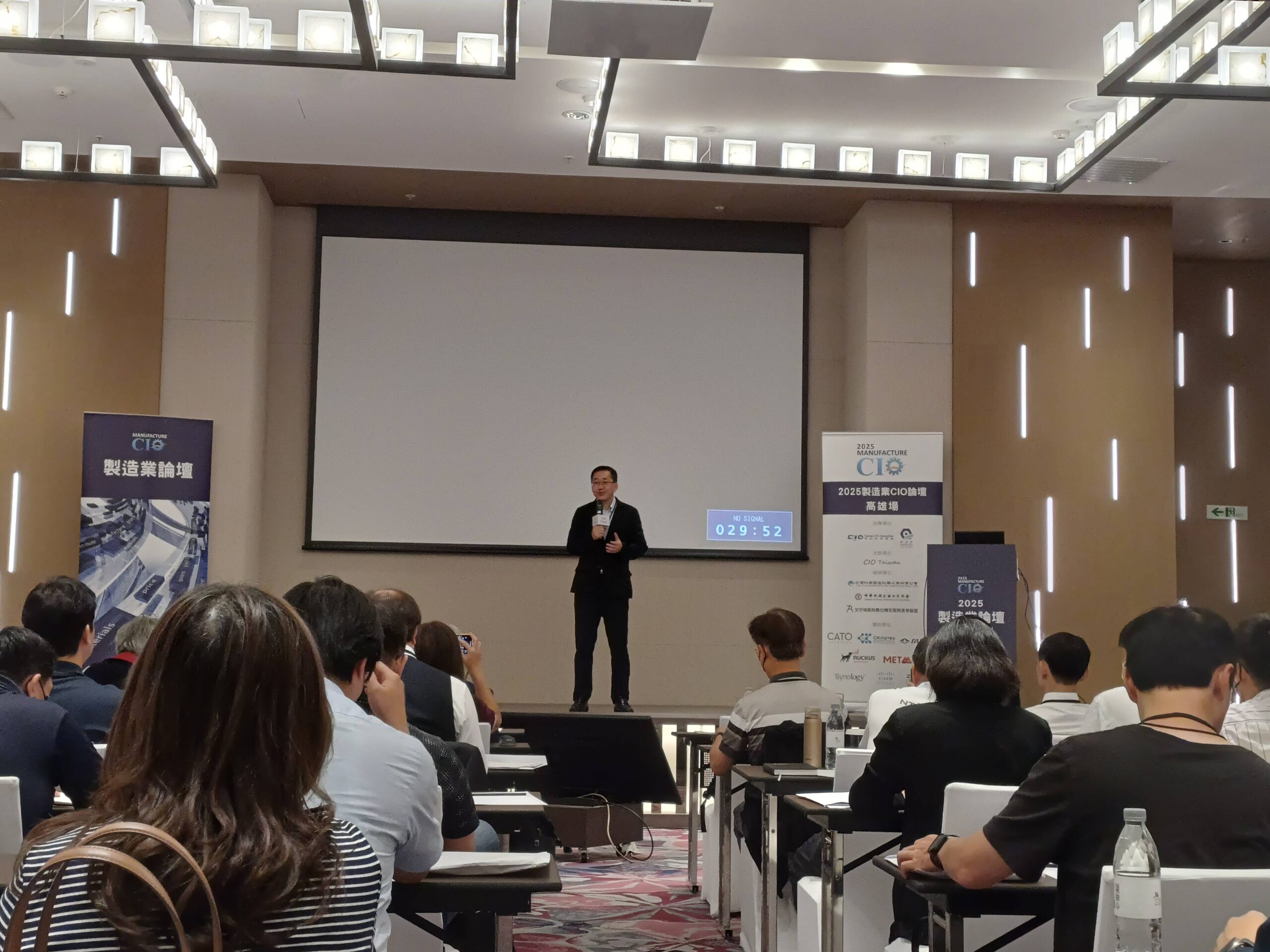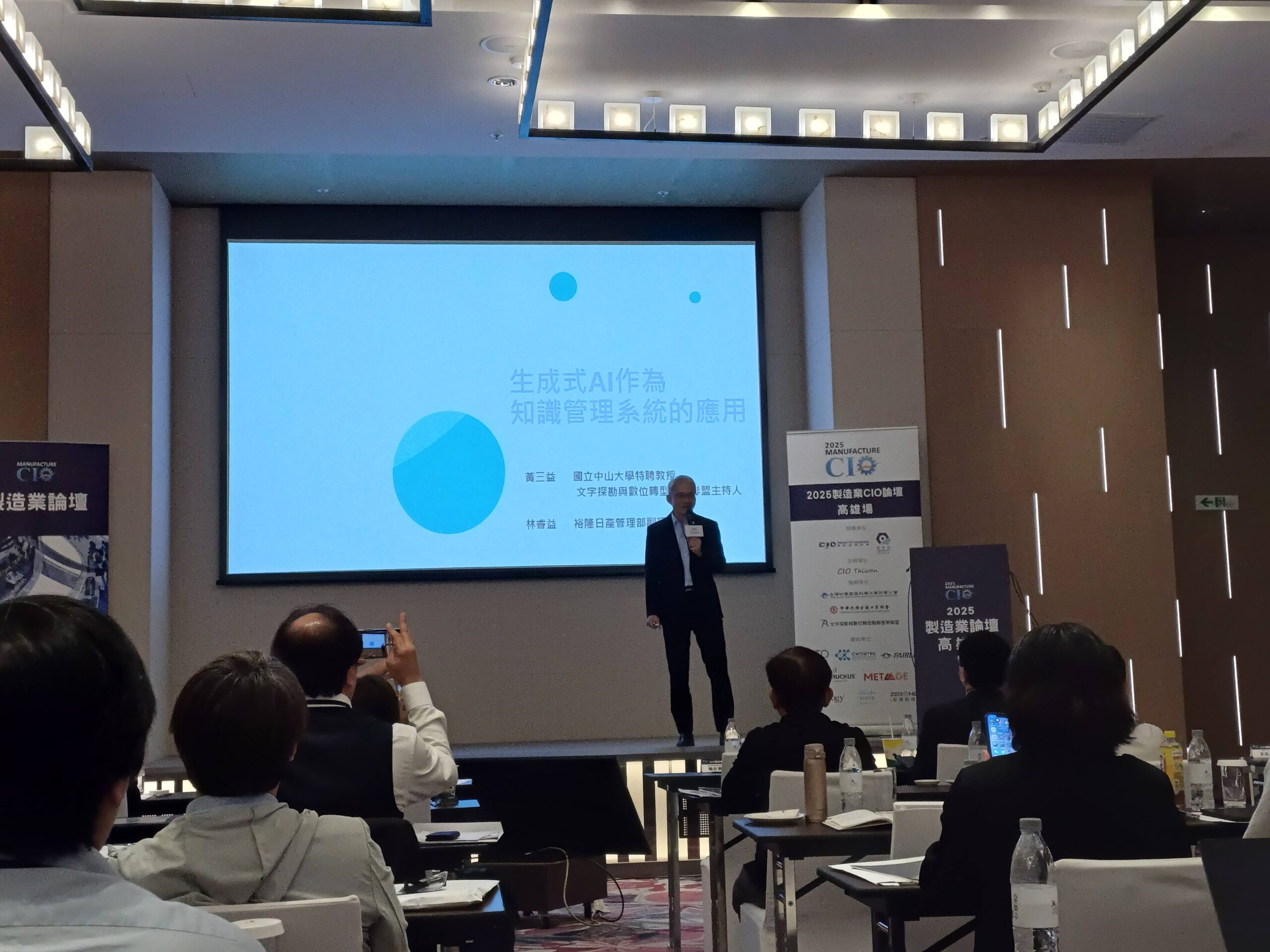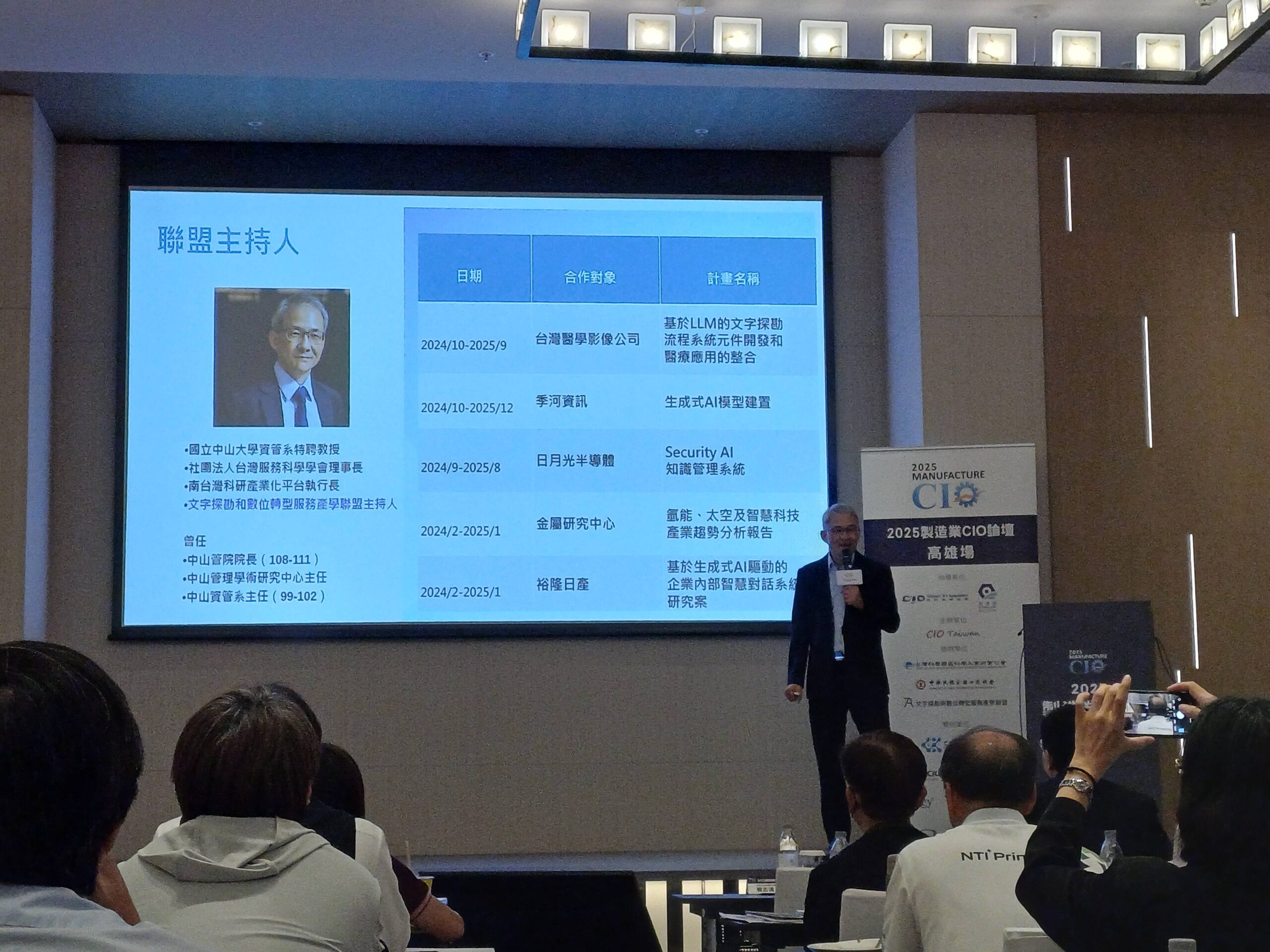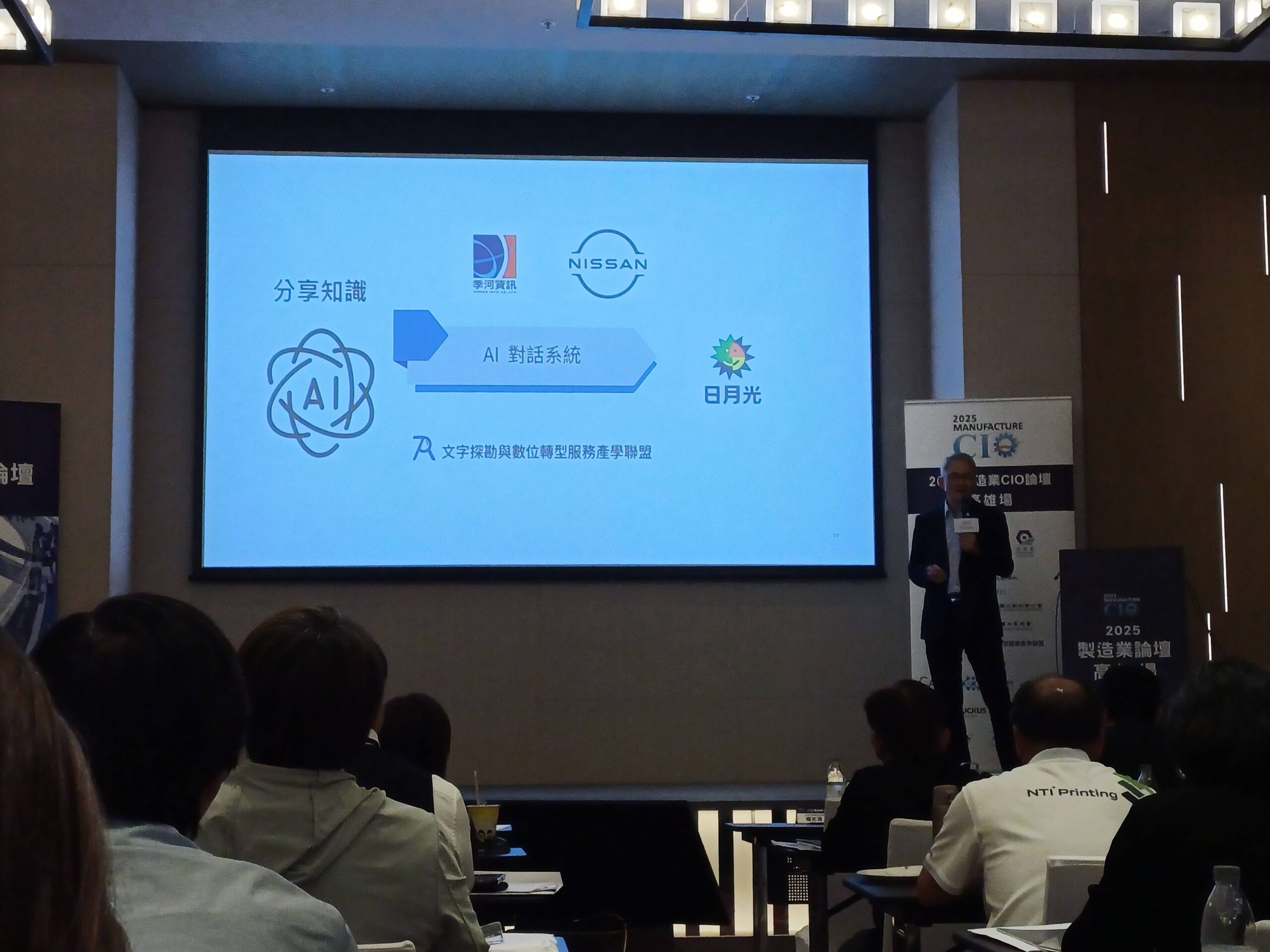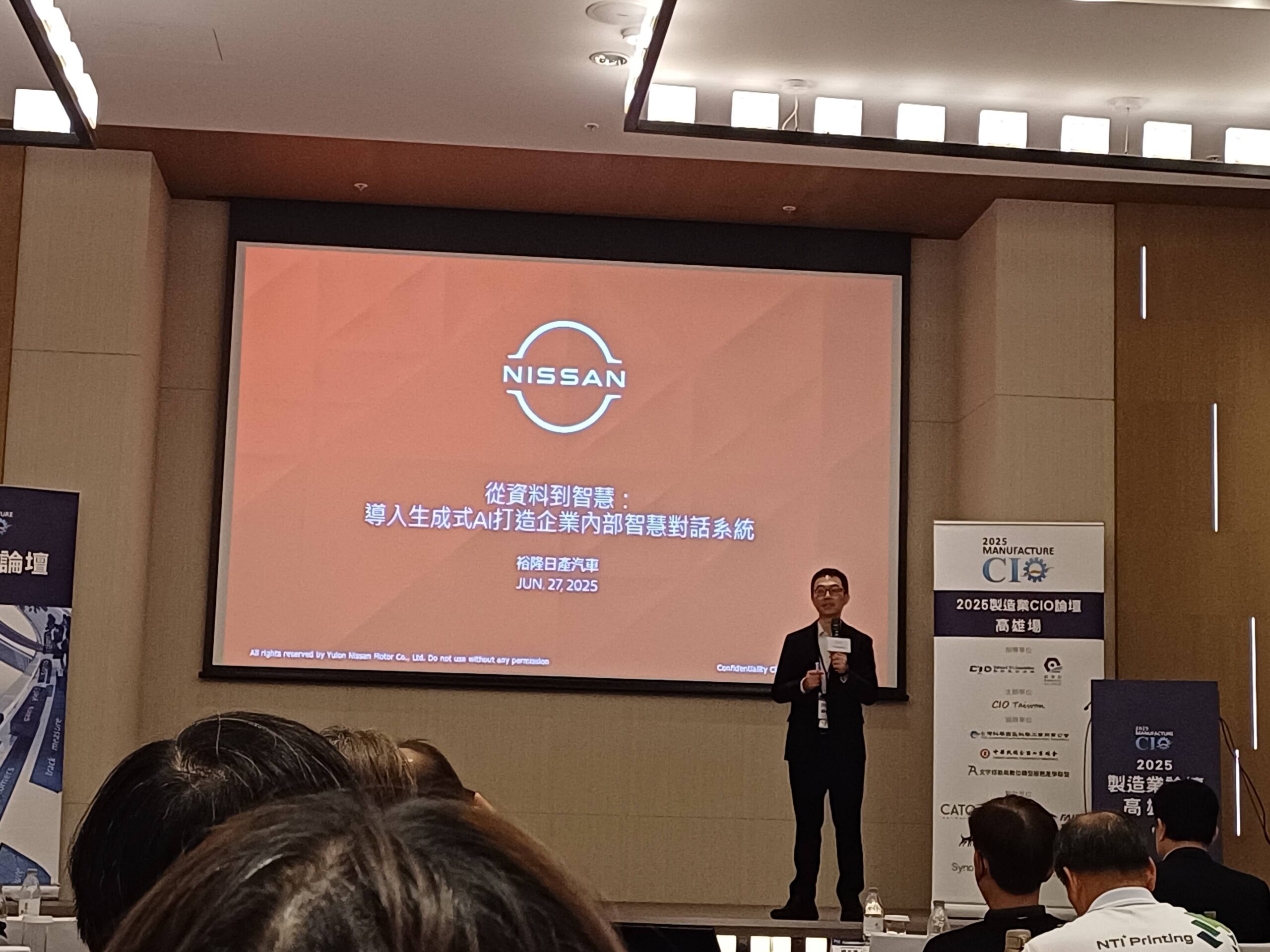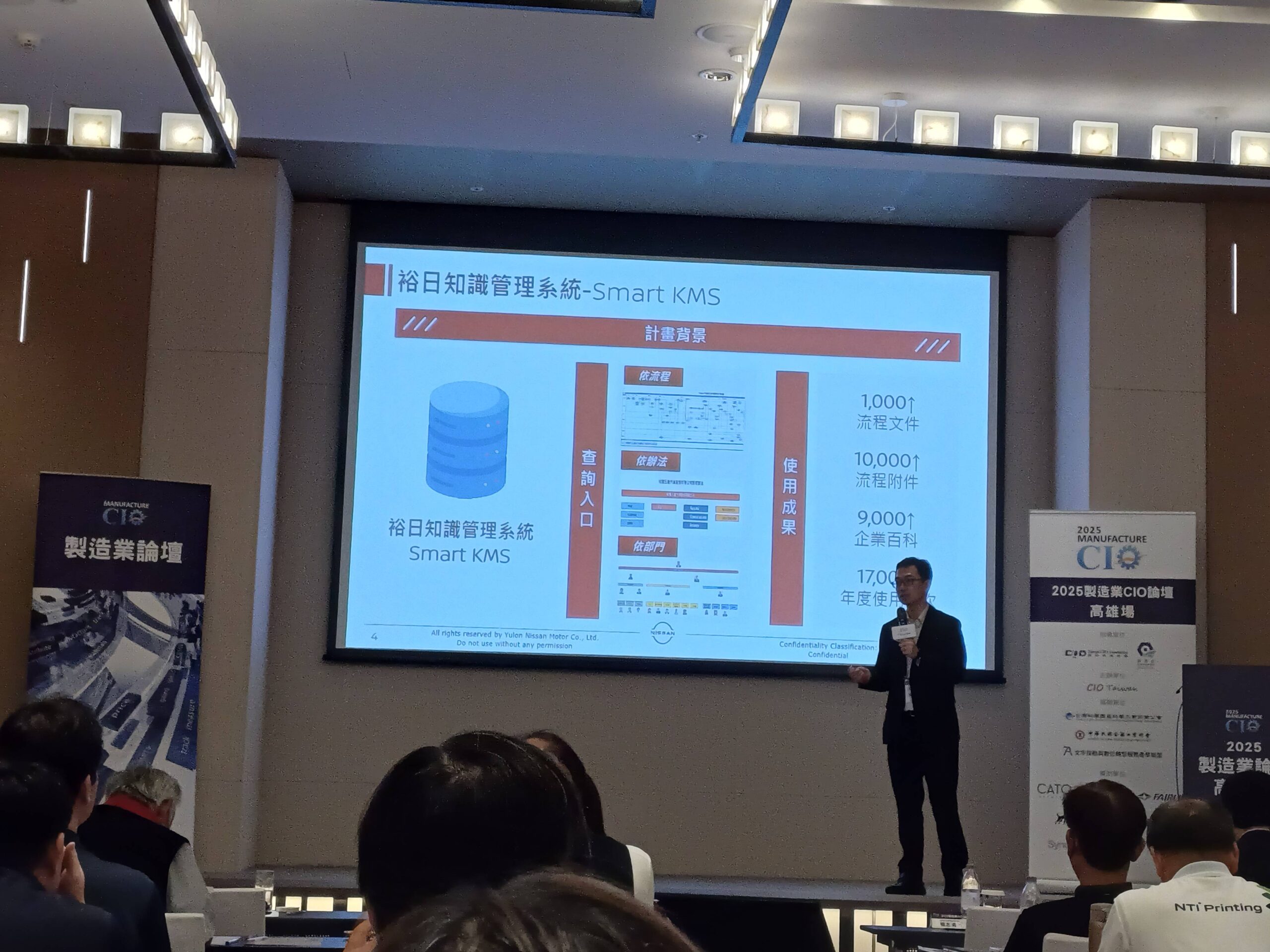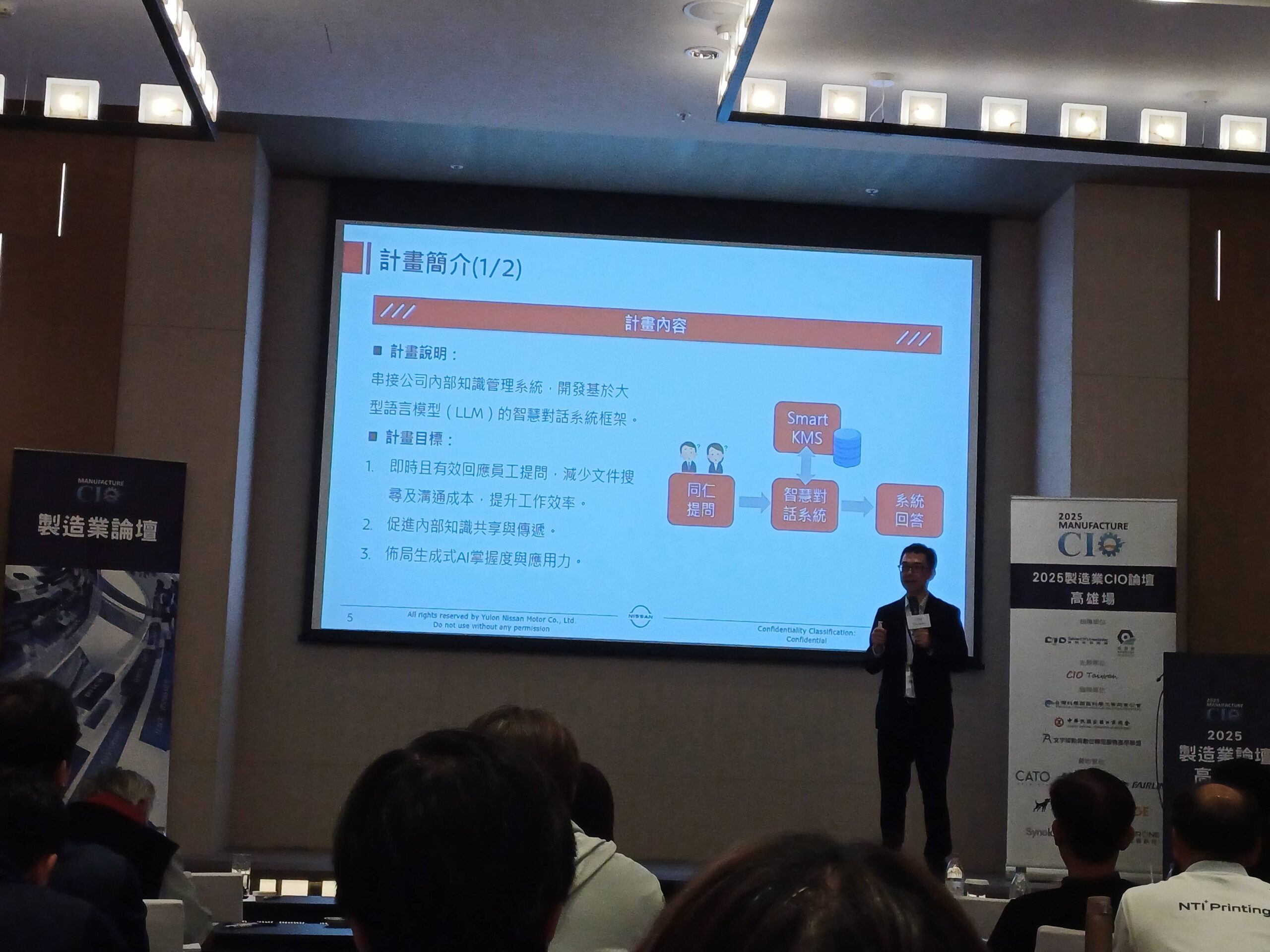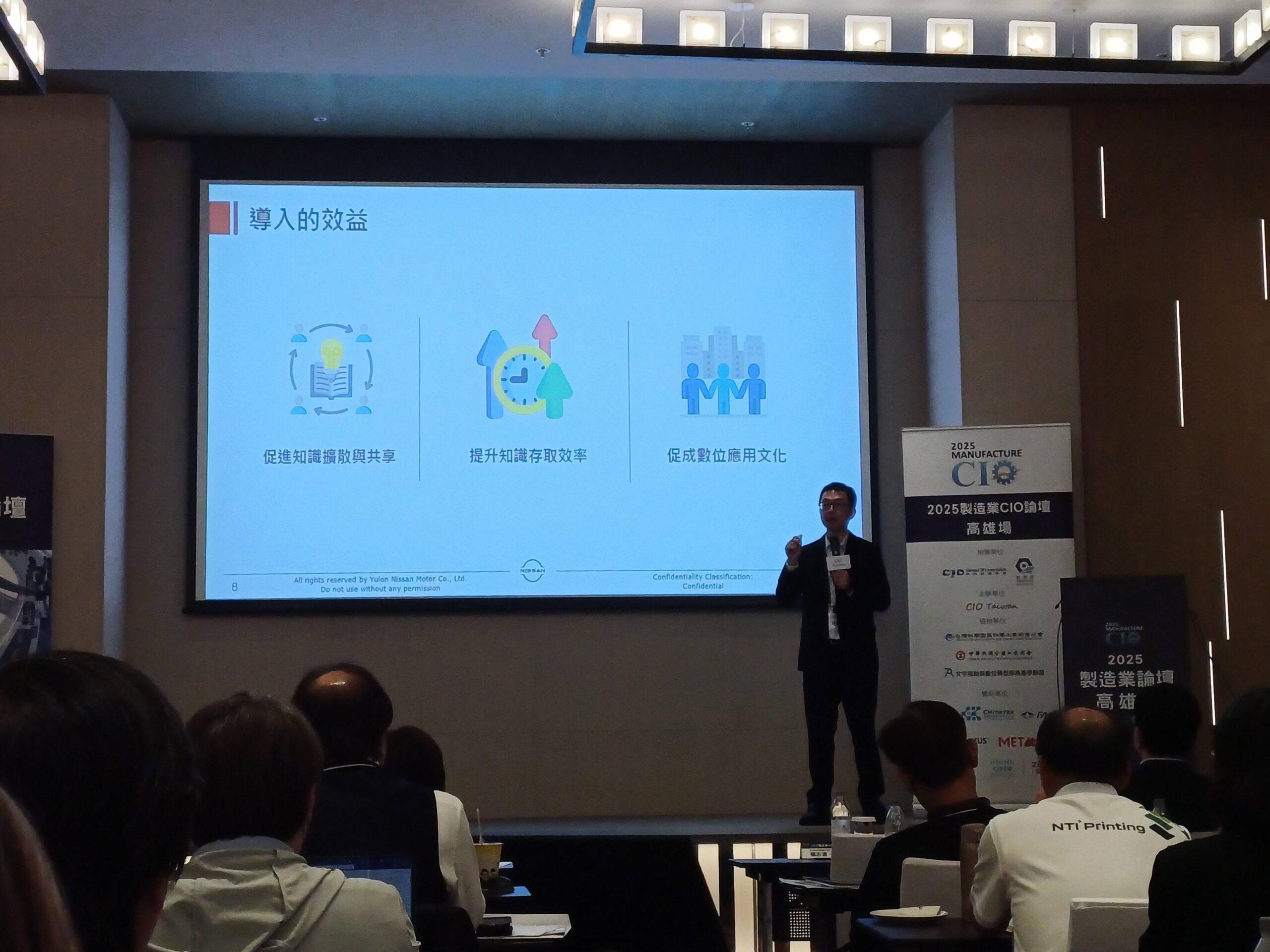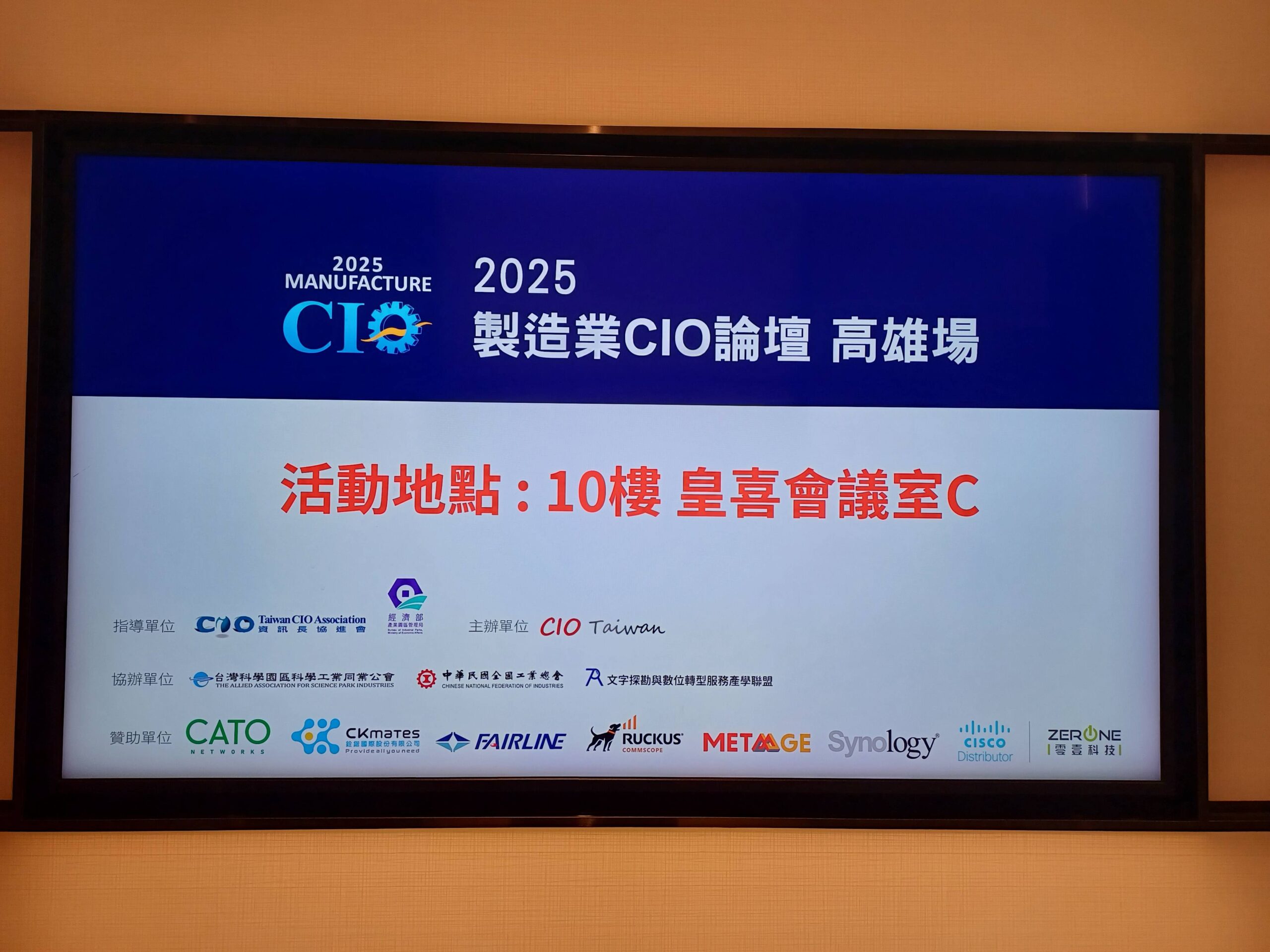Event Date: Friday, June 17, 2025
Event Time: 1:00 PM – 4:40 PM
Event Venue: Kaohsiung Marriott Hotel, 10th Floor, Royal C Hall
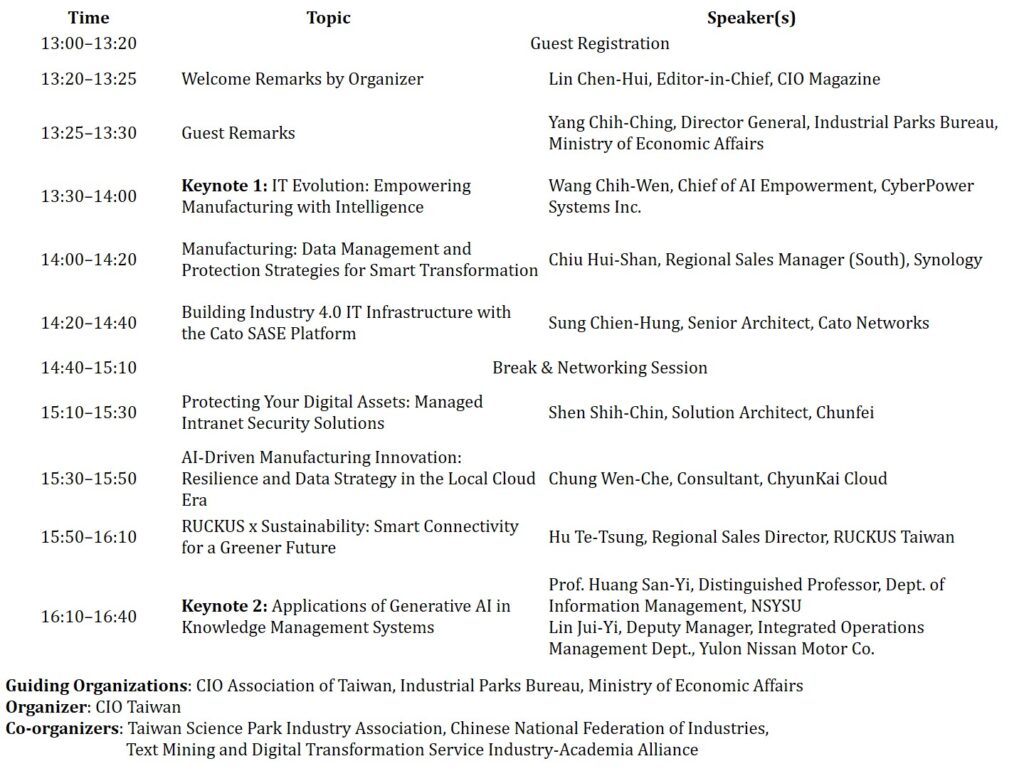
This forum was organized by CIO Taiwan, with co-organization from the Text Mining and Digital Transformation Services Industry-Academia Alliance. The event focused on the theme: “Strategies and Practices for Enhancing Manufacturing Resilience.” It addressed key issues in the digital transformation journey of the manufacturing sector—ranging from IT architecture evolution to enterprise knowledge management systems—with a particular emphasis on the practical applications of generative AI and cybersecurity solutions.
Held at the Kaohsiung Marriott Hotel, 10th Floor, Royal C Hall, the event featured guests including government representatives, industry experts, and academic authorities. With over 100 participants in attendance, the forum served not only as a cross-disciplinary platform for knowledge exchange but also as an important opportunity to advance industrial upgrading and transformation strategies. Experts in smart manufacturing, cloud architecture, and enterprise digital resilience shared their experiences.
The event began with opening remarks by Mr. Lin Zhen-Hui, Editor-in-Chief of CIO Magazine, the organizing body. Mr. Lin noted the growing wave of AI-driven transformation in manufacturing. Following the success of the Taipei session held in mid-June, the Kaohsiung session continued the focus on smart transformation, exploring new trends in digital transformation, information security, and sustainability in the manufacturing sector.
Director Yang Chih-Ching from the Industrial Park Bureau, Ministry of Economic Affairs, also gave a speech, expressing optimism as experts gathered to delve into innovative topics like cloud technology and artificial intelligence (AI). He hoped the forum would build consensus and foster innovative strategies to drive industrial upgrading and accelerate smart transformation.
Keynote Presentations:
Mr. Wang Chih-Wen, Chief AI Officer of Chyun Yih Electronic, shared how AI adoption enhances manufacturing processes, highlighting strategies for on-premises data deployment to address cybersecurity and computing efficiency challenges.
Ms. Chiu Hui-Shan, Regional Sales Manager at Synology (Southern Taiwan), presented enterprise-grade backup and data protection technologies.
Mr. Sung Chien-Hung, Senior Architect at Cato SASE, demonstrated real-world applications of the SASE platform in integrating OT and IT systems.
Mid-Session Break and Networking:
During the break, attendees engaged in lively discussions with on-site vendors. Highlights included:
Zero One Technology and Cisco, showcasing AI applications for enhancing digital operations and cybersecurity.
Synology, offering secure, high-efficiency data management systems to ensure reliable access to large volumes of digital information.
Afternoon Session:
Mr. Shen Shih-Chin, Solution Architect at JUMP Technology, shared an integrated internal network control solution to help companies protect core data.
Mr. Chung Wen-Che, Cloud Consultant at Chain Sea Information Integration, discussed how network infrastructure supports corporate ESG goals.
Highlight Session – Knowledge Management and Generative AI:
A joint presentation by Professor Huang San-Yi from National Sun Yat-sen University and Mr. Lin Jui-Yi, Deputy Manager at Yulon Nissan, focused on applying generative AI in enterprise knowledge management systems. They demonstrated how generative AI integrates internal documents, processes, and dialog systems to enhance knowledge utilization and operational intelligence.
Professor Huang cited a 2024 McKinsey & Company survey, showing that the top enterprise applications of generative AI were in marketing strategies and knowledge management, highlighting the increasing importance of internal efficiency. After introducing several industry-academia collaborations involving generative AI in internal management, he outlined the three core steps of knowledge management: knowledge creation, storage/management, and sharing—detailing how generative AI supports each stage and the benefits it brings. He also addressed challenges in AI adoption, such as data protection and content accuracy/control.
Mr. Lin Jui-Yi shared Yulon Nissan’s experience in deploying the Smart KMS knowledge management system over the past two years in collaboration with the Alliance. The system integrates procedural documents and operational know-how, providing a user-friendly query interface and building an intelligent assistant with corporate knowledge background. He noted that the initial rollout faced challenges and required time and verification, but the case illustrated a forward-looking plan for digital and intelligent system integration, reaffirming both the potential and challenges of generative AI in enterprise knowledge support.

